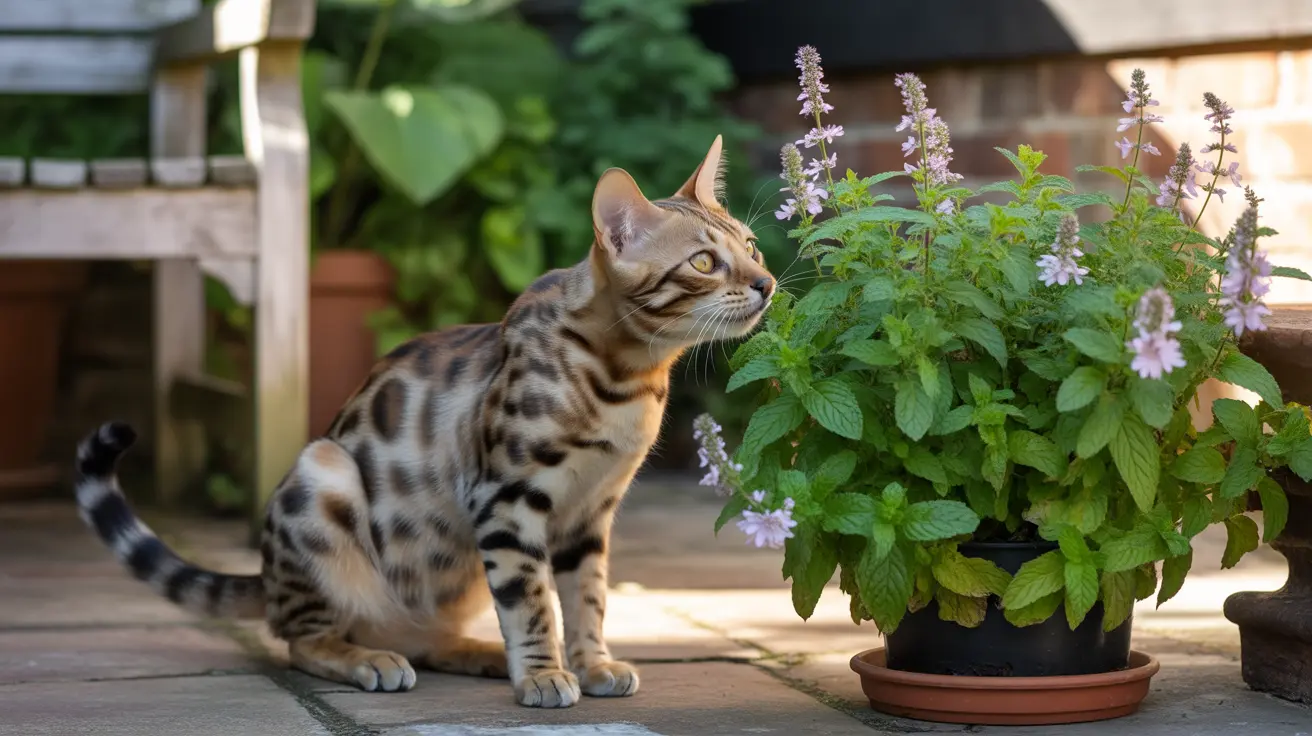The Complex Relationship Between Cats and Peppermint
Cats have a fascinating relationship with mint-family plants. Some felines appear drawn to peppermint's aroma because it contains compounds chemically similar to nepetalactone, the active ingredient in catnip. However, this attraction can be dangerous, as peppermint contains toxic compounds that cats' bodies aren't equipped to process safely.
Understanding Peppermint's Dangers to Cats
Peppermint contains several compounds that are toxic to cats, including menthone and methyl salicylate. Cats lack the necessary liver enzymes to break down these substances effectively, making them particularly vulnerable to peppermint poisoning.
The risks are especially high with concentrated forms like essential oils, but even fresh peppermint leaves can cause problems for cats.
Common Sources of Peppermint Exposure
Household Items
- Essential oils and diffusers
- Scented candles and air fresheners
- Cleaning products
- Personal care items
- Holiday treats and decorations
Garden and Plants
- Peppermint plants
- Herb gardens
- Potted mints
- Mixed flower arrangements
Signs of Peppermint Toxicity in Cats
If your cat has been exposed to peppermint, watch for these warning signs:
- Drooling and vomiting
- Diarrhea and stomach upset
- Lethargy or weakness
- Difficulty breathing
- Tremors or seizures
- Liver failure (in severe cases)
Keeping Your Cat Safe from Peppermint
To protect your cat from peppermint exposure:
- Avoid using peppermint essential oils in any form
- Keep peppermint plants out of reach
- Check ingredient labels on household products
- Store mint-containing items securely
- Choose cat-safe alternatives for aromatherapy
Frequently Asked Questions
Are peppermint and peppermint oil safe for cats to sniff or ingest?
No, peppermint and peppermint oil are not safe for cats. Both can cause serious health problems through ingestion, inhalation, or skin contact. Even small amounts can be toxic due to cats' inability to process certain compounds found in peppermint.
Why do some cats seem attracted to mint scents like peppermint even though it's toxic?
Cats may be attracted to mint scents because peppermint belongs to the same plant family as catnip. The plants share some similar chemical compounds, though peppermint contains additional toxic components that make it dangerous for cats.
What symptoms should I watch for if my cat is exposed to peppermint or peppermint oil?
Watch for drooling, vomiting, diarrhea, difficulty breathing, weakness, tremors, or unusual behavior. If you notice any of these symptoms after peppermint exposure, contact your veterinarian immediately.
Can using peppermint essential oil diffusers harm my cat, and how can I keep them safe at home?
Yes, diffusers can harm cats through inhalation and oil droplets settling on their fur. The safest approach is to avoid using peppermint essential oils entirely in homes with cats. If you must use essential oils, keep cats out of the room and ensure proper ventilation.
How is catnip different from peppermint, and why is catnip safe for cats while peppermint is not?
While both are in the mint family, catnip contains nepetalactone, which creates a safe, euphoric response in cats. Peppermint contains different compounds, including toxic essential oils and salicylates, that cats cannot properly metabolize.
Conclusion
While cats might show interest in peppermint, it's crucial to keep this potentially dangerous plant and its derivatives away from your feline friends. Understanding the risks and taking proper precautions will help ensure your cat's safety and well-being.
If you suspect your cat has been exposed to peppermint, contact your veterinarian or the Pet Poison Helpline immediately. Remember, when it comes to peppermint and cats, it's better to err on the side of caution.






